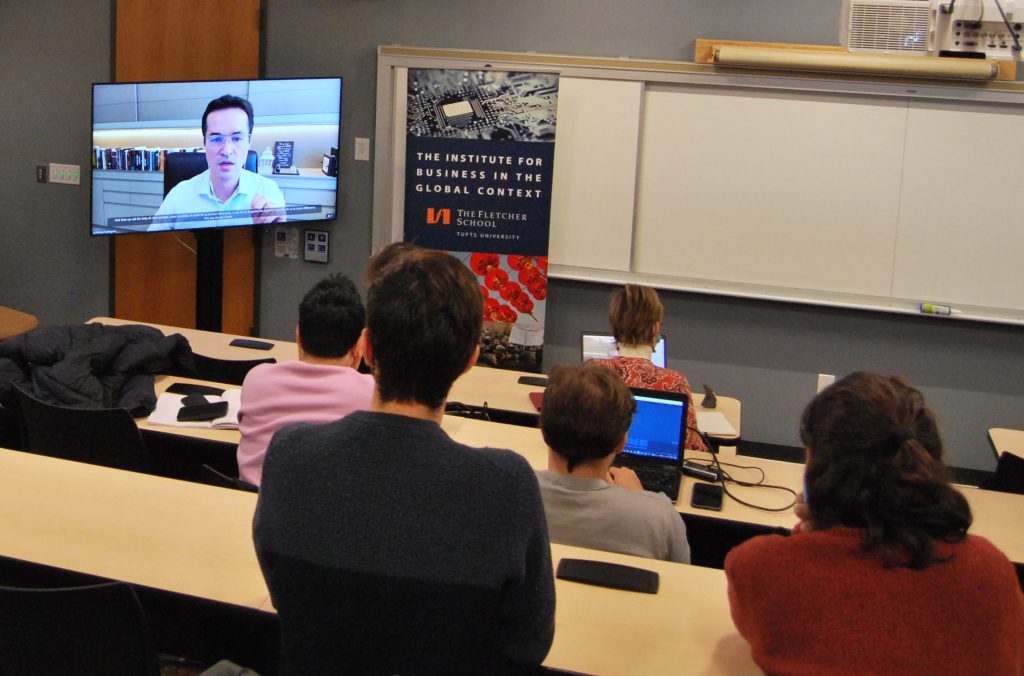
‘Car Wash’ Prosecutor Speaks on Anti-Corruption in Latin America
By Sarah Foote
On March 1, Deltan Dallagnol, a former federal prosecutor from Brazil spoke via Zoom to students at the Fletcher School as part of The Institute for Business in the Global Context (IBGC) Speaker Series about the work he completed as the leader of the biggest anti-corruption investigation in Brazil known as Car Wash (Lava Jato) 2014-2020. He and a group of fellow prosecutors brought more than 500 indictments and 150 convictions as part of Car Wash and reached agreements to recover more than 3 billion dollars.
The session was moderated by Prof. Rodrigo DeMello, Visiting Associate Professor, who teaches Business and Political Economy in Latin America and specializes in how the relationship between business and governments in Brazil informs the strategic decisions of both domestic and multinational corporations.

What started out as an investigation into money laundering led Dallagnol and his team of investigators on an unprecedented six-year battle against corruption that sent several high-profile Brazilian politicians and business leaders to jail, which spilled over to several Latin American countries, including Panama, Guatemala, Peru, and El Salvador.
Dallagnol told students that many of the bribes they investigated went to corrupt politicians that had two uses for the money – to enrich themselves and to further finance corruption and political power. Even though he and his team faced some “unwarranted criticism”, their purpose was to bring justice to those breaking the law.
“Our team had to inform society about the scandal to seek change and have people support these changes. We didn’t take political sides. We worked together and worked within the law,” Dallagnol said. Adding, “Car Wash was an island of justice in an ocean of injustice. ”
He also told students that he and his team had total trust in one another and worked to draft several proposals to change corruption laws. Dallagnol said that before the start of Car Wash money laundering and racketeering laws were frequently abused by those in power without proper punishment—both company executives and politicians were found to be corrupt.
“If Congress won’t change the law, we need to change Congress. People always accepted the abuse of laws. We needed new politicians to make change,” Dallagnol told students.
Because the work Car Wash conducted was based on facts, evidence, and law—95 percent of the legal decisions regarding the case were upheld.
Dallagnol has received many awards for his work on Car Wash including the Transparency International Anticorruption award and the Special Achievement Award from the International Association of Prosecutors.
The Institute for Business in the Global Context (IBGC) Speaker Series welcomes leaders and innovators to Fletcher to share their insights on the latest trends impacting where business meets the world.
